French Pomerdog Dog Breed Information
The Pomerdog, a charming mix of the Pomeranian and French Bulldog, brings together the best traits from both breeds. These small dogs are known for their friendly attitude and love for companionship, making them great pets for families and solo owners.
They sport a thick coat from their Pomeranian side, which needs regular brushing to stay shiny. To keep a Pomerdog happy, giving them enough exercise and mental challenges daily is vital. They’re great with kids and other pets adaptable to various living situations.
Owners should watch for any health concerns specific to the breed and provide the necessary care. Overall, the Pomerdog’s pleasant nature and convenient size have won the hearts of many dog lovers.
Key Takeaways
- Pomerdogs blend Pomeranian and French Bulldog traits.
- Daily exercise and mental stimulation keep them content.
- Health monitoring ensures a thriving Pomerdog.
The Pomerdog charms with a mix of affection and adaptability. Their thick coat demands consistent grooming for luster. Aware owners watch for breed-specific health issues to maintain wellness.
Quick Facts
The Pomerdog, a charming mix of Pomeranian and French Bulldog, is perfect for city living with its small size. This hybrid brings the best of both worlds, combining the French Bulldog’s easy-going nature with the spirited character of a Pomerdoge.
Before bringing a Pomerdog home, one should consider that they might be quite vocal, a trait inherited from the Pomeranian side. However, their friendly demeanor makes them great companions for families.
These dogs stay healthy and happy with regular exercise and mental stimulation, even in a modest-sized apartment. Coat care is simple and can strengthen the bond between you and your pet through routine brushing.
For those looking to adopt, checking local shelters for these adorable mixed breeds is a kind gesture.
Overview
The Pomerdog is a unique crossbreed that combines the small size of Pomeranians with the sturdy physique of French Bulldogs. This hybrid, known as the French Pomerdog, combines elements from two breeds with rich histories—the fluffy Pomeranians of the past and French Bulldogs that became popular in France. See the video above to know more.
Ideal for apartment dwellers, the Pomerdog is a good fit for various homes, although their tendency to be vocal and energetic should be taken into account. These dogs have a dense coat that demands consistent grooming and thrive on daily activity and mental challenges. A well-rounded diet is vital for their overall health, highlighting the necessity of understanding their specific needs.
Pomerdog Pictures
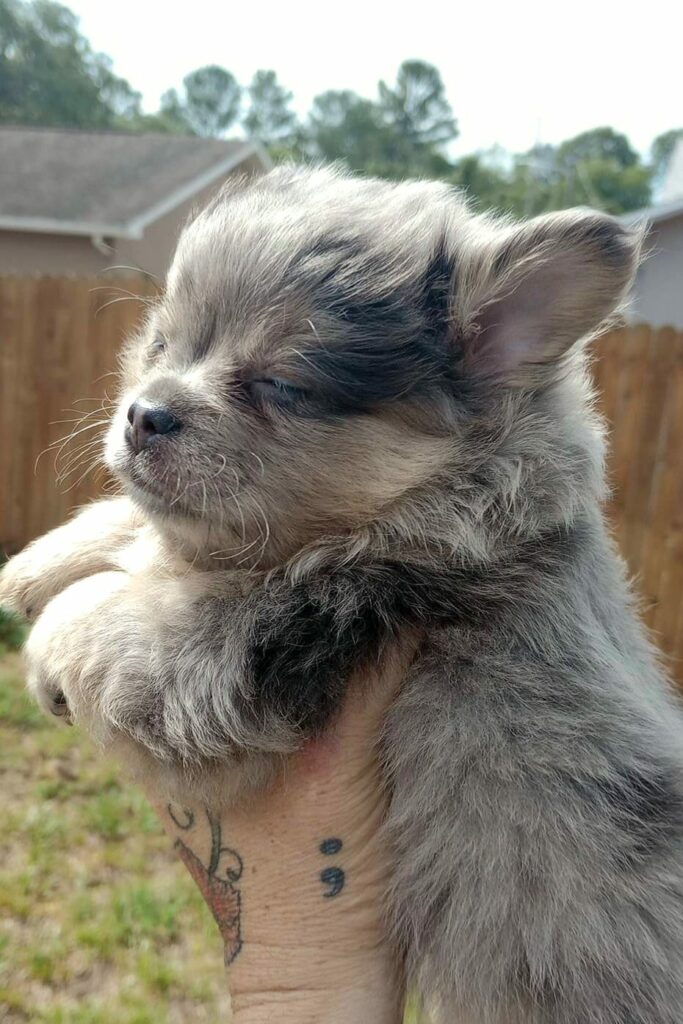
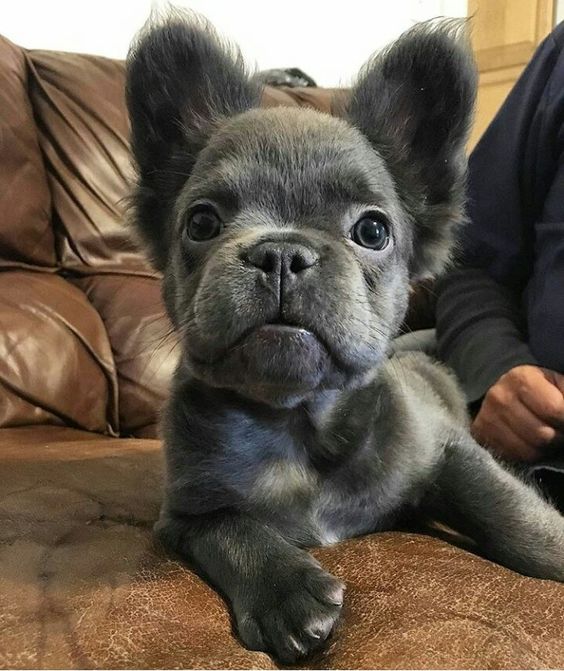
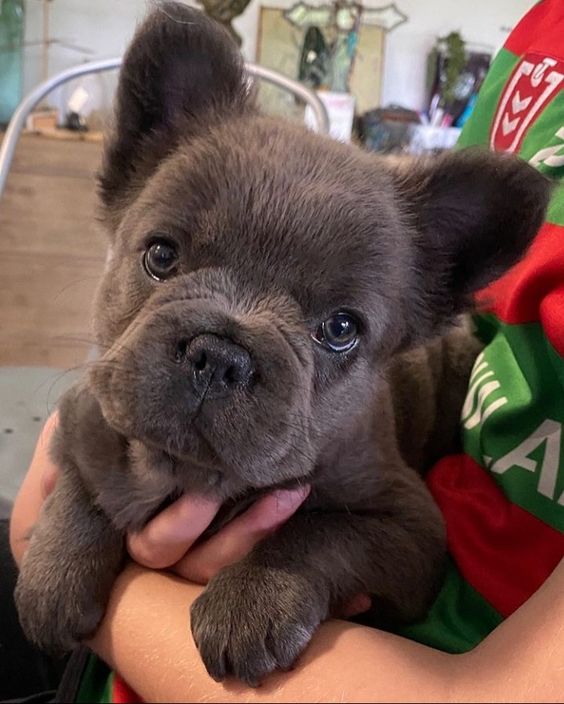
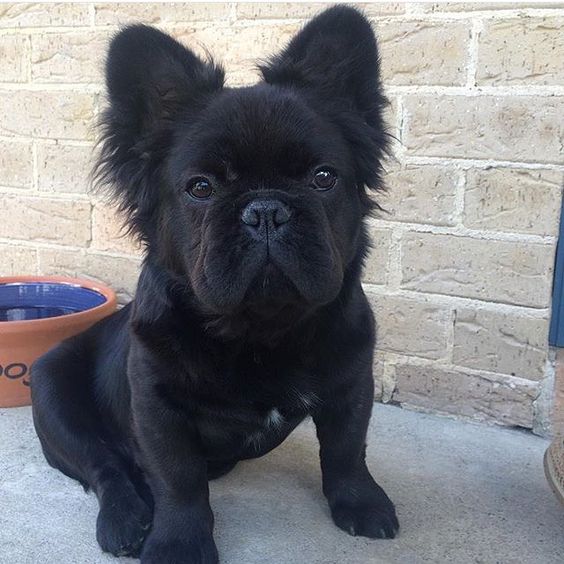
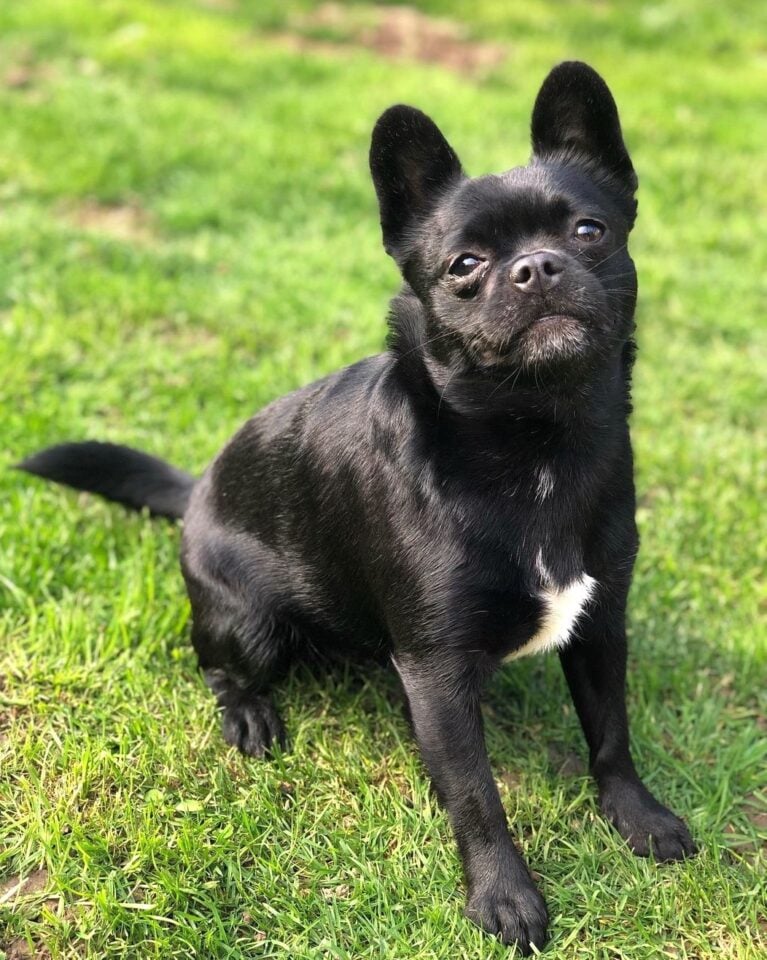
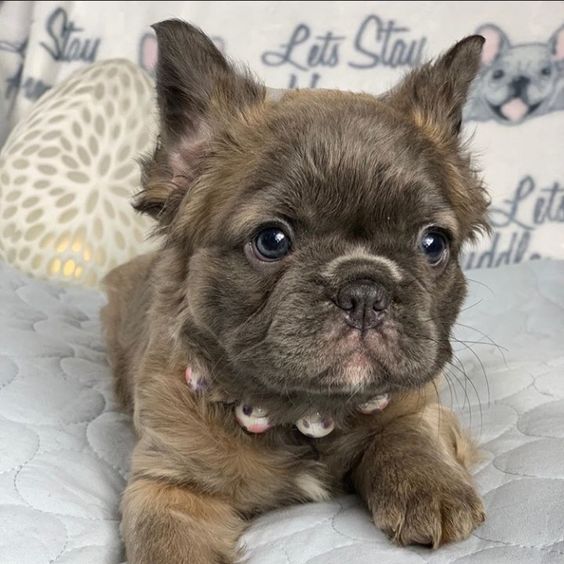
Key Traits
Pomerdogs shine as adaptable pets, fitting seamlessly into various home environments and matching many lifestyles. Their small size and agreeable nature make them popular among many pet owners. Observations of Pomerdog behavior show they are friendly and loving with their families, but they can be somewhat cautious around new people, which shows they’re selective.
Here’s a quick rundown of the Pomerdog’s defining characteristics:
| Trait | Description |
|---|---|
| Size | Compact, easy to accommodate in different home sizes |
| Temperament | Warm and sociable with those they know |
| Adaptability | Comfortable in various living spaces, including flats and larger homes |
| Maintenance | Regular grooming is necessary, but it’s not overwhelming |
| Compatibility | Good with kids and can get along with other animals |
These qualities highlight why Pomerdogs are considered desirable companions for diverse family settings.
Breed Origins

The canine Pomerdog, a delightful mix of the Pomeranian and French Bulldog, showcased in the creation of new dog breeds—Results from meticulous selection to bring out the best traits of both species. The evolution of this breed and its path to becoming an acknowledged crossbreed reflects the history and complexity of dog breeding.
Tracing Genetic Ancestry
The Pomerdog’s ancestry is a fascinating study in genetic selection. By examining the breed’s past, we can see how breeders have carefully mixed and matched characteristics to craft a dog with the Pomerdog’s distinctive qualities.
Developing Breeds Historically
The development of breeds like the Pomerdog pup is steeped in history. Breeders have long been pairing dogs with desirable traits to produce offspring that carry those qualities, and the Pomerdog is no exception to this tradition.
The Path to Crossbreed Acknowledgment
Gaining recognition for a new breed is a process that takes time and evidence of the breed’s stability in health and temperament. The Pomerdog has been on such a journey, gradually earning its place among established species.
Genetic Lineage Tracing
The Pomerdog is an exciting of two very different dog breeds: the tiny and energetic Pomeranian and the sturdy, good-natured French Bulldog. From the Pomeranian, this hybrid gets its fluffy coat, a feature that stands out thanks to its Spitz heritage. The French Bulldog contributes a solid and muscular body, giving the Pomerdog a more substantial appearance.
By looking at the characteristics of the Pomeranian and the French Bulldog, we can understand the Pomerdog’s appearance and behavior. This crossbreed exhibits a lively personality paired with a friendly disposition.
It’s also important to be aware of the health issues that may come from its genetic background.
Historical Breed Development
The Pomerdog, a mix between a Pomeranian and a French Bulldog, is a product of careful breeding and cultural shifts.
The Pomeranian started as a giant pomerdog breed within the Spitz family and was selectively bred to become the small, lovable dog that the AKC now recognizes.
On the other hand, the Frenchie originated in England but gained popularity in France, where its distinctive features were refined and beloved.
Both breeds were carefully selected for their traits, which has given the Pomerdog its charming size and lively personality.
These dogs are examples of thoughtful breeding phases on both the look and their temperament, showing the detailed work that goes into creating new dog breeds.
Crossbreed Recognition Evolution
The trend of crossbreeding dogs like the Pomerdog showcases the modern approach to combining different dog breeds. People who love dogs are increasingly interested in new mixes, like the Pomerdog, which bring together preferred qualities from various purebreds.
The Pomeranian, known for its Spitz roots, and the French Bulldog contribute to the unique charm of the Pomerdog. This hybrid represents more than just a mix of two; it reflects our ongoing creativity in the quest for the perfect pet.
To truly understand the Pomerdog, it’s helpful to learn about the careful breeding that shaped its parent breeds, resulting in this beloved and distinctive new mix.
Physical Dimensions
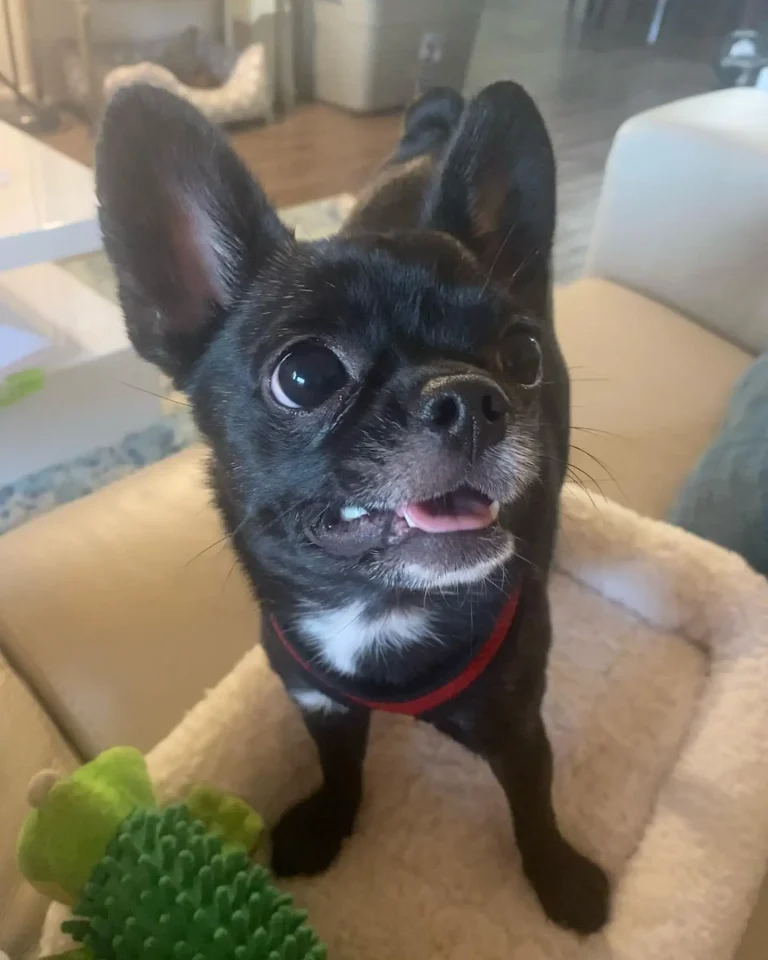
The size and weight of a Pomerdog can vary widely, as it inherits from its Pomeranian and other dog breed ancestors. Prospective owners should learn about the breed’s typical growth patterns to set appropriate expectations and care for the dog properly. Understanding these physical traits is crucial for the health and happiness of these energetic pets.
When comparing a Pomerdog to its parent breeds, you’ll notice that its size may fall anywhere between them. A balanced diet and regular exercise significantly affect their weight. As for their height, it’s typically influenced by both age and genetics, so knowing the history of the Pomerdog’s parents can provide a helpful indicator of its potential size.
Size Comparison
Pomerdogs stand out with their minor yet sturdy build, typically between 10 and 12 inches tall and weighing as much as 22 pounds. These dimensions make them perfect for apartment living, as they don’t require as much space as larger breeds.
Their size also makes them easy to manage, which is ideal for simple dogs that are simple to their size. Pomerdogs have a bi despite their size personality, often showing as much love and energy as dogs twice their size.
Their compact build combination makes them a favored choice among various dog lovers.
Weight Range
Keeping a Pomerdog’s weight in check is vital, as they can weigh as much as 22 pounds. Their small size means extra weight can strain their bones and joints, increasing the risk of health issues like arthritis.
It’s also vital to prevent conditions linked to their build, such as breathing difficulties. Owners should closely monitor their pet’s diet and ensure they get enough exercise. Staying active helps maintain a healthy weight and can prevent other health problems, including skin, eye, and ear conditions.
It’s also wise to have consistent vet visits to keep track of their weight and overall health.
Height Measurement
They typically stand between 10 and 12 inches at the shoulder when measuring. Knowing the crucial is essential as it helps decide the right size for their living space and how they’ll interact with their environment.
For example, a taller Pomerdog might need a larger bed or ramp access to furniture.
Understanding a Pomerdog’s height is also valuable. Their fit will fit well with your routine and living conditions. It can even play a role in specifying health issues common to the breed.
Plus, their proportions can make their coat’s color and patterns look more striking.
Breed Standards
The Pomerdog, a mix between a French Bulldog and a Pomeranian, doesn’t have an official set of breed standards due to its hybrid status. These dogs usually have the sturdy frame of a French Bulldog combined with the more petiteian’s more petite and more plush body. This blend of traits can result in a hardier. It mayution and help avoid common health issues seen in purebreds, such as joint problems in Pomeranians or breathing difficulties in French Bulldogs.
Keeping a Pomerdog at a healthy weight is vital. Overweight dogs can face increased health risks, significantly impacting their happiness and lifespan. Regular check-ups and a balanced diet contribute to their well-being, ensuring these charming companions lead an entire and active life.
Growth Patterns
The growth patterns of Pomerdogs often reflect their mixed Pomeranian and French Bulldog roots. These dogs generally weigh between 10 and 25 pounds and have a height of 11 to 13 inches at the shoulder when fully grown. Predicting the exact size of a Pomerdog puppy can be challenging for owners, but they can look forward to having a small and sturdy pet.
Each Pomerdog’s growth rate and final size may differ significantly due to their genetic mix and other factors like their nutrition and exercise habits, and owners need keepers to keep a close eye on their Pomerdog’s growth and consult with a vet if they notice any health concerns.
Temperament Traits
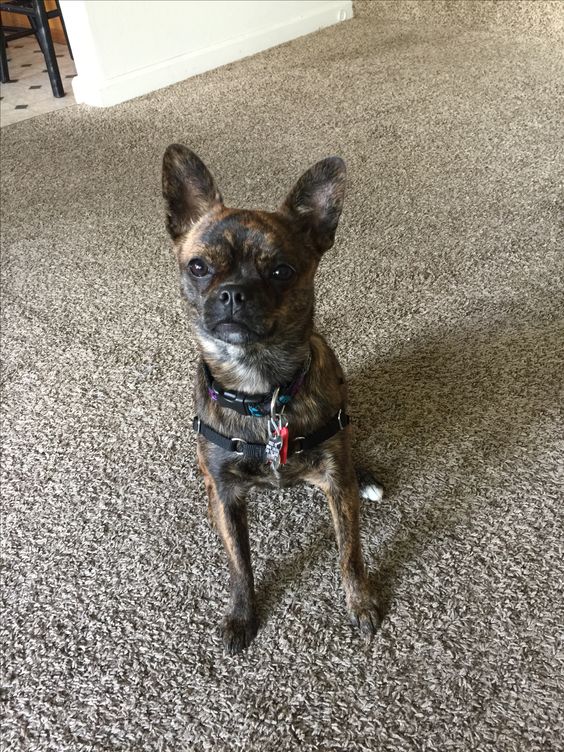
Understanding the temperament of a Pomerdog plays a vital role when you’re considering adding one to your household. These dogs are known to switch between being friendly and pleasant to being energetic and playful before settling into quieter moments. It’s essential to recognize a mix of social interaction and rest.
Training a Pomerdog might present some challenges because it sometimes becomes pretty willful. However, with patience and understanding training, you can work through these moments of stubbornness. Clear routines and positive reinforcement are often vital in helping them learn and thrive in a family environment.
- Warm and Sociable Nature
- Balancing Active and Quiet Times
- Overcoming Training Challenges with Patience
Affectionate Family Companion
The Pomerdog, a blend of Pomeranian and French Bulldog traits, is a beautiful family pet. These dogs are warm and social, happily fitting into different living spaces, even small apartments. They require regular exercise and mental challenges to stay healthy and content.
Welcoming their family with wagging tails and enjoying cuddle time, Pomerdogs positively impact the emotional health of their owners. They get along well in a family setting, especially when socialized early with other pets.
Their love for being around people makes them a beloved addition to any home.
Playful Vs. Calm Balance
Pomerdogs often strike a perfect balance between lively activity and calmness, making them great companions for both play and relaxation. They love to play with other dogs or engage in fun games with their owners, showing off their energetic nature.
Yet, they can also be quite content just resting on a lap, showcasing their calm demeanor. Their flexible personality allows them to fit nicely into different environments- a busy family home or a more peaceful apartment.
They interact with others in a way that respects boundaries while still being friendly and sociable, showing how well-balanced they are.
Alertness and Barking Tendency
Pomeranians are known for their sharp awareness and tendency to bark, making them excellent at keeping watch. These intelligent dogs can tell the difference between ordinary and strange happenings, often alerting their owners with a bark. However, without proper training, their alertness can lead to undesired noise. Teaching Pomeranians early on when barking is appropriate can prevent this issue.
Due to their smarts, Pomeranians may experience separation anxiety, which can lead to Owners needing to provide plenty of mental exercise and company to keep these dogs happy and maintain a peaceful home.
Socialization Needs
Socializing a Pomerdog is vital for their development into friendly and well-adjusted pets. These dogs may naturally be bitted; they can become outgoing companions reserved, but with early and varied exposure to different environments, they can become companions.
Positive reinforcement promotes desired behaviors andirons and cements strong bonds with their owners.
Regular visits to dog parks can be a great way to combine physical activity with social opportunities, leading to a happier and less nervous dog.
When appropriately introduced to other household pets, Pomerdogs, known for their kindness and love for children, can be family members, creating a peaceful home life.
Stubbornness Training Challenges
Training a Pomerdog can be a test of patience due to its stubborn nature, combining the Pomeranian’s boldness with the French Bulldog’s self-reliant streak. This mix often results in a determined attitude, presenting unique challenges for trainers.
Those teaching a Pomerdog should use a patient, consistent approach and try to understand their mindset. An empathetic strategy that acknowledges their need for some control usually gets a better response.
Using rewards and praise works well with their intrinsic desire for approval. Regular and predictable training helps set clear rules, which is vital for dogs with strong-willed character. The best approach is to provide steady guidance while using positive reinforcement to create an encouraging training atmosphere.
Common Health Concerns
Like other Pomeranians, they have health concerns that future owners need to be aware of. They can inherit certain conditions that may affect their quality of staying on top of their vital health needs.
Respiratory issues and dental health are susceptible areas that benefit from consistent veterinary care to avoid potential problems.
- Inherited Health Conditions
- Respiratory Health
- Dental Care
Inherited Genetic Disorders
People love Pomerdogs for their loving nature. However, these dogs can inherit several health problems that new owners must watch out for.
Due to their facial structure, these dogs may develop issues like loose kneecaps (patellar luxation) and breathing difficulties. They can also have dental problems because of their tiny mouths, highlighting the need for regular teeth cleaning by a vet.
Skin conditions, eye and ear issues, and even other concerns. This makes responsible breeding essential to reduce these health risks.
Knowing about these potential issues can help owners take steps early on to keep their furry companions healthy and joyful.
Respiratory System Issues
Respiratory problems in Pomerdogs often stem from their mixed breed heritage, including traits from French Bulldogs that make them prone to breathing issues. These dogs may experience anything from slight snoring to severe difficulty breathing, especially when stressed or active.
Their thick coats, similar to Pomeranians, can make them overheat, adding to their breathing challenges. Owners must be attentive and compassionate, taking their pets for regular check-ups to catch and treat any respiratory problems early.
Acting swiftly is vital to preserving the health of these dogs.
Dental Health Maintenance
Pomerdogs, with their distinct breed traits, are prone to respiratory issues but also face severe dental health challenges. To prevent dental diseases, which they’re genetically predisposed to, owners must brush their Pomerdog’s teeth daily.
A strong focus on oral health, including routine professional cleanings, is vital to avoiding tooth and gum problems. Ensuring your Pomerdog has a consistent dental care routine is as critical as daily exercise for their long-term health and happiness.
Maintenance & Upkeep

Caring for a Pomerdog requires attention to detail and a commitment to their well-being. Owners must establish a routine that includes grooming, adequate exercise, a balanced diet, and regular health check-ups, all tailored to the dog’s needs.
Proper grooming is crucial for a Pomerdog’s thick fur to prevent tangles and maintain a healthy coat. They also need daily physical activity that makes them physically fit and mentally sharp.
To keep them in top condition, it’s wise to have regular vet visits to catch any health issues early.
Grooming Requirements
Caring for a Pomerdog means regular grooming, which includes brushing their coat, keeping it in good condition, and trimming their nails. Their double coat, inherited from their Pomeranian relatives, needs frequent care to avoid tangles and keep them healthy. Brushing a few times a week helps control shedding and spreads the coat’s natural oils, giving it a healthy glow. For quick clean-ups, coat wipes are handy, helping to maintain the dog’s skin oils without frequent baths.
Caring for a Pomerdog also involves cleaning its unique wrinkled muzzle to prevent skin issues. Keeping their nails trimmed is vital to avoid discomfort and to support proper movement. Grooming your Pomerdog with kindness can strengthen your bond and keep your pet happy and comfortable.
Daily Exercise Routines
Caring for your Pomerdog means more than just keeping them clean; it’s also about giving them the right amount of daily exercise. They need a good mix of physical activity and brain games due to their energetic nature and working dog background.
It’s essential to design daily workouts that fulfill these needs. A good rule of thumb is a 30-minute walk daily, along with playful activities like fetch or tug-of-war, to keep things fun and engaging. Staying active helps Pomerdogs avoid weight gain and reduces the chance of behavior problems due to lack of exercise.
Different toys and outdoor activities keep them happy and healthy in body and mind.
Health Check Frequency
Taking your Pomerdog for veterinary check-ups twice yearly is a smart move to catch and manage health issues early. These regular visits are essential for monitoring conditions like hip dysplasia and eye disorders, common in small breeds.
Keeping an eye on your dog’s weight is also vital, as excess pounds can lead to joint problems and affect their health.
Integrating preventive care such as vaccinations, dental exams, and daily grooming can significantly improve your Pomerdog’s life.
Responsible pet owners who stay on top of these health routines can help their dogs avoid many health issues down the line.
Diet and Nutrition
A well-balanced diet keeps your Pomerdog healthy and prevents weight issues. Choose a diet that provides all the nutrients your Pomerdog needs for its high energy and thick fur. Include the right amount of proteins, carbs, fats, vitamins, and minerals.
Watching how much your dog eats is vital to stop them from gaining too much weight, which can worsen inherited health problems. Keep an eye on how active your Pomerdog is every day to figure out their dietary requirements.
Doing so helps maintain their playful and loving characteristics with a nutritious and well-managed diet.
Training and Discipline
Training your Pomerdog requires a consistent approach with positive reinforcement to encourage good behavior. Due to their intelligent and alert disposition, Pomerdogs respond well to patient training, including rewards and praise. Instead of punishment, using positive methods keeps the dog motivated and keen to learn.
Regular grooming is part of this breed’s needs because of their thick coat, which also provides a chance to reinforce discipline by having them stay still and follow commands during grooming sessions.
Introducing them carefully to children and other animals is critical to fostering good social skills and preventing harmful behaviors. A well-rounded training regimen ensures that Pomerdogs become lovable and well-behaved pets who enjoy a life of structure and love.
Dietary Requirements
Caring for Your Pomerdog’s Diet
Ensuring your Pomerdog eats right is critical to keeping them healthy and full of life. These dogs need a special diet that matches their genetic needs to prevent health problems and keep them thriving.
Balanced Nutrition
For your Pomerdog, a well-rounded diet is critical. It helps avoid nutritional gaps that could lead to health issues. Each meal should include the right mix of protein, fats, carbohydrates, vitamins, and minerals to support their overall health.
Addressing Allergies
Some Pomerdogs may have food sensitivities or allergies, which require careful attention to what they eat. Always check for ingredients that could cause reactions and opt for hypoallergenic dog food if necessary.
Feeding Routine Tips
Sticking to a consistent feeding schedule helps maintain your Pomerdog’s digestive health. It also prevents overeating and weight gain. Usually, two meals a day is a good routine, but consult your vet for personalized advice.
Optimal Nutrition Balance
Pomerdogs thrive on a diet tailored to their unique requirements, including age, weight, and activity.
Because they’re prone to weight gain, providing them with high-quality dog food packed with protein but low on unnecessary fillers is critical. Managing their portions is vital to keep them from becoming overweight.
Regular check-ups with a vet are the best way to get advice on a Pomerdog’s diet, ensuring they stay healthy and their coat remains shiny and full. This approach helps maintain their well-being without overloading them with calories.
Allergy-Specific Ingredients
Many Pomerdogs have food allergies, requiring owners to be vigilant when choosing their diet to keep them healthy.
As a valued member of your household, ensuring a Pomerdog’s diet meets their needs without causing harm is vital.
When you bring a Pomerdog into your home, watch for allergic reactions like skin issues or stomach problems. A vet can help pinpoint any allergens so you can avoid them in your dog’s meals.
Quality dog food brands offer specialized formulas for sensitive pets, providing a nutritious diet that’s safe for your Pomerdog.
Caring for your dog’s dietary needs is vital to their overall health.
Feeding Schedule Recommendations
A regular feeding schedule that suits their specific nutritional needs is necessary to keep your Pomeranian healthy. Consulting a veterinarian for a balanced diet recommendation is critical to this process.
It’s important to watch their portions to avoid weight gain, so choose a high-quality dog food that matches their activity level. Their feeding routine should also consider their daily physical and mental stimulation needs.
Constantly monitor how much you feed them to prevent overheating and ensure they can access clean water.
For Pomeranians with particular health issues like allergies or respiratory problems, please seek advice from your vet to ensure the diet supports their health.
